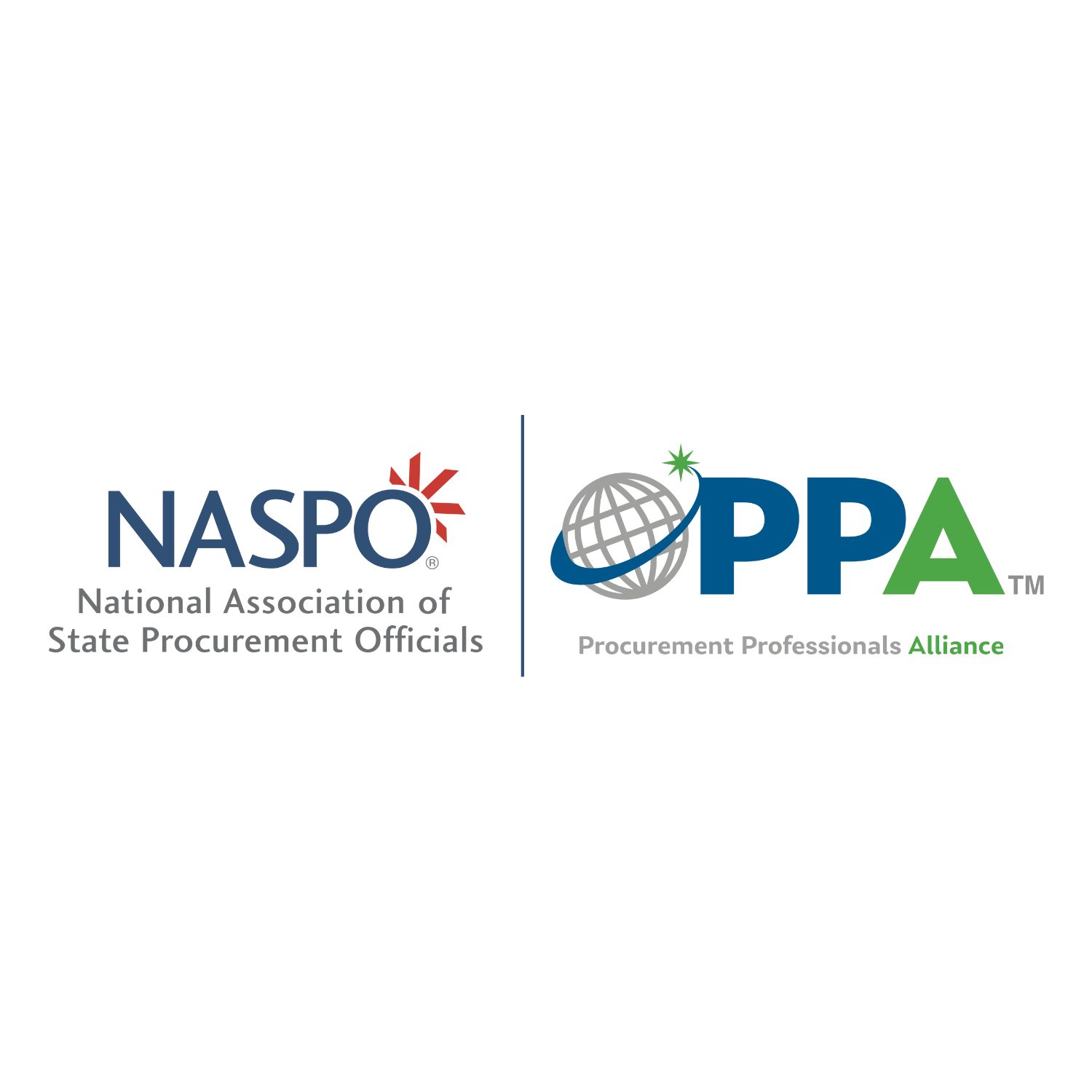Concurrent Sessions VII | April 25 | 1:30 PM – 2:20 PM
Session 7A: SECURE 2.0 - What to Expect
Description
On December 23, 2022, SECURE 2.0 was officially passed by both chambers of Congress, and the legislation was signed into law by President Biden on December 29, 2022. This is the third phase of major retirement reform legislation enacted in the past 20 years, following SECURE 1.0 in 2019 and the Pension Protection Act of 2006. Key Provisions SECURE 2.0 is designed to: make it easier to use in-plan lifetime income solutions Americans face a $4 trillion retirement income gap, facilitate increased savings and income preservation "40% of families are forecast to exhaust their savings during retirement," expand access to employer-sponsored retirement plans "only 52% of workers have access to an employer-sponsored plan, simplify plan administration," employers frequently cite cost and lack of resources as barriers to starting a plan, to achieve these goals, the legislation will, for instance, reduce barriers to annuitization, allow financial incentives to encourage employee contributions, expand coverage for part-timers and streamline plan notices. Additionally, some provisions, such as mandating Roth accounts for age-based catch-up contributions, are meant to ease government funding requirements.
Challenges for Plan Sponsors:
SECURE 2.0 contains 95 provisions in total, creating potential implementation challenges: Each provision has its own effective date, ranging from immediately to years from now. Some provisions are optional, others mandatory. Regulatory agencies will issue regulations on certain provisions for the next few years. Some provisions will likely be publicized in popular media, generating employee questions. Many existing plans lack features, such as a Roth option, necessary to accommodate the legislation's requirements.
Learning Objectives
1. Understand the SECURE 2.0 legislation and how it affects the administration of retirement plans.
2. Be able to determine what changes plan sponsors need to make and be thinking about.
3. Help plan sponsor ensure they are compliant with these new regulations.
Speakers
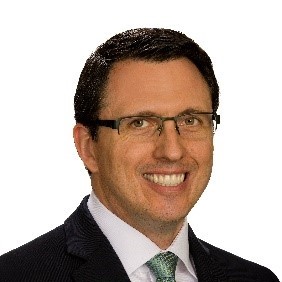 Chris Spence, TIAA, Managing Director Government Relations Chris Spence, TIAA, Managing Director Government Relations
Chris’ career spans over 23 years during which he’s worked as a financial advisor, policy analyst and lobbyist. He currently leads TIAA’s Federal Government Relations team, charged with developing enterprise-wide policy positions and advocating on behalf of TIAA and its affiliates.
As a financial advisor, Chris focused on helping clients chart a path for their long-term financial goals. After eight years in this role, he joined Government Relations as a policy analyst, using his frontline experience with clients to inform sensible policy solutions designed to improve Americans' financial well-being. After several years, he began advocating directly with federal policy makers on the importance of enhancing retirement security for all Americans. He continues to work with lawmakers and regulators to ensure they understand how proposals they are considering could impact Americans’ financial well-being, while keeping internal and external stakeholders apprised of developments in Washington, DC.
Chris has written two white papers: “Increased Longevity and the Annuity Solution: How Retirement Policy Reforms Can Reduce Longevity Risk,” published by the TIAA Institute and “Lessons for Retirement Plan Design from the Nonprofit Sector,” published as part of the PostPartisan Foundation’s Campaign for Economic Security.
In addition to receiving his B.A. in Journalism from Rowan University, Chris holds a number of financial designations, including the Chartered Financial Consultant (ChFC), the Chartered Life Underwriter (CLU), and the Chartered Advisor for Senior Living (CASL). In his free time, Chris enjoys musical pursuits, playing golf and spending time with his wife and three children.
Session 7B: Investment Management 101 for Small Endowments
Description
Most institutions hire money managers to actively invest their endowments. The professional literature provides evidence that a majority of active fund managers fail to outperform their benchmark index. How do business officers know whether active management is worth the fees? This session provides an overview of active vs passive investment management. Specifically, the presenters demonstrate how the performance of small endowments could potentially be improved by pursuing a passive, index-based investment strategy.
Learning Objectives
1. Explore the basics of investing in different asset classes.
2. Discuss the difference between active and passive investing and describe the strengths and weaknesses of each strategy.
3. Learn to construct a passive portfolio using exchange traded funds.
Speakers
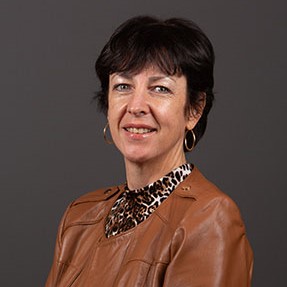 Barbara von Brandt, Schreiner University, Assistant Professor of Accounting Barbara von Brandt, Schreiner University, Assistant Professor of Accounting
Dr. Barbara von Brandt, assistant professor of accounting, spent her career practicing and teaching accounting. She is passionate about her chosen profession and has practiced accounting in Germany, Kenya, and the United States of America. Barbara started her career in her native Germany where she worked in public accounting. She audited corporations and partnerships and prepared tax returns for businesses in a variety of industries. After moving to the United States, Barbara started working for Schreiner University in Kerrville, Texas, and served for twelve years in administrative positions as budget coordinator, controller, and assistant vice president for finance and controller. In 2015, she joined the faculty of Schreiner University and is currently teaching introductory financial and managerial accounting, intermediate, advanced, and regulatory accounting. Dr. von Brandt's research interest is financial performance in higher education institutions. She co-authored a paper exploring the investment return of Schreiner University's actively managed endowment and comparing the results to a passive investment strategy. Barbara and her husband Paul live in Hunt, Texas, with their cat Little Miss Sunshine.
 Lucien Robert Costley, Schreiner University, Vice President for Planning and Finance Lucien Robert Costley, Schreiner University, Vice President for Planning and Finance
My professional career began in a scientific laboratory; our mission was to target the genes responsible for atherosclerosis, diabetes, and obesity. The work was cutting edge and amazing, just like my experience at MIT while working on my honors thesis. After a couple of years, I transitioned into education as an administrator and worked to provide adult education services at various multi-site learning centers throughout a 15-county geographical area. It was highly interactive work, and I was able to couple a business marketing plan within an education setting to maximize results, all the while following federal grant management guidelines.
I excelled at the state level in Adult Education and became integral to curriculum standards development, training, and grants management. I was then promoted to lead the Office of School Health and Safety and served as a liaison between school institutions and national/state agencies – targeting the safe environments by offering consulting services from professional development to executives and/or administering federal grant technical assistance.
After a near 10-year commitment within the K-12 industry, I acquired my doctoral degree from Seton Hall University (Go Pirates!) and fused my educational leadership with my administrative experience in higher education. I began investigating institutional performance and conducting research of the institution, for the institution. I served as the Director of Institutional Research and Analysis at Schreiner University and informed the President and Cabinet in ways that promoted effective decision-making and successful outcomes. In turn, I enhanced my abilities to develop institutional strategy, structure, and process for proactively anticipating and addressing university needs around compliance, accreditation, and certification. My mindset for quantitative statistical analysis coupled with my strong academic background has allowed me to truly excel within this environment and promote institutional excellence and effectiveness in realizing the university’s mission and strategic goals.
Over time, I expanded by expertise with budget and financial planning for Schreiner University and was promoted to Assistant Vice President for Institutional Planning and Financial Services. I began the management and oversight for an annual operating budget of $35M and capital budget of $5M for the university and worked closely with the CFO on all components of his portfolio in anticipation of his retirement. My proven abilities and acquired financial expertise have granted me the opportunity to presently serve as the Chief Financial Officer and Vice President for Planning and Finance.
Session 7C: Tapping into the Potential of Disconnected Data for Long-Range Planning and Budgeting
Description
Learn how a large public university and small private university both shared a similar challenge with disconnected data and cumbersome planning worksheets. The institutions will discuss the challenges they faced with existing practices, and demonstrate how they are now able to TAP into the full potential of their data to drive informed financial scenarios for analysis and budgeting.
Learning Objectives
1. Identify opportunities to leverage financial and statistical institutional data across campus to make data informed decisions
2. Understand fundamentals of intuitive, informative and effective long-range planning and budgeting dashboards
3. Determine best practices for change management driven by central budget office.
Speakers
 Russ Owen, TruEd, Senior Manager, Customer Relations Russ Owen, TruEd, Senior Manager, Customer Relations
Russ is a Director at TruEd Consulting. Prior to joining TruEd, Russ held a variety of positions including Executive Director of Finance and Budget at Embry-Riddle Aeronautical University, Implementation Consultant at Kaufman Hall, and Mayor of New Smyrna Beach. His duties surrounded all aspects of annual revenue and expense budgeting, long range planning, capital planning, and executive reporting in a multi-campus environment and the implementation of budgeting and planning software for other higher education clients. As Mayor, he also provided executive leadership for a team of 300 employees in a community of 30,000 citizens.
Russ has more than four years of consulting experience in higher education, including work with the University of Alabama, University of Alabama at Birmingham, Emory University, Capital University, and University of South Florida. His use cases include annual budgeting, long range planning, capital planning, and management reporting. His additional industry experience includes software, personal finance, and the public sector. Russ holds a B.S. in Business Administration and a Master of Business Administration from the University of Central Florida. Russell was also the 2022 Young Government Officer of the Year.
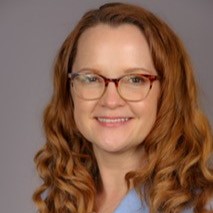 Kelly Epting, University of South Carolina, Associate VP for Finance and Budget Kelly Epting, University of South Carolina, Associate VP for Finance and Budget
Kelly Epting, CPA, MBA is the Associate Vice President for Finance and Budget at the University of South Carolina and CFO of the South Carolina Research Foundation. With eighteen years in higher education, she has specialized in university budgeting, planning and analytics, foundation accounting and grants management. Kelly began her career in auditing with Deloitte. She has a BA in accounting from Furman University and an MBA from the Darla Moore School of Business at the University of South Carolina.
 Neal Goffman, Vice President, Anaplan Public Sector Neal Goffman, Vice President, Anaplan Public Sector
Neal Goffman is an AVP leading Anaplan’s Public Sector business unit. Neal has been working with public sector clients since 1996. His experience includes deep planning expertise, business intelligence, financial management, advanced analytics, and AI.
Neal has over 30 years of experience partnering with a variety of public sector institutions many of whom were colleges and universities on issues related to financial management and analytics. Neal personally was the Project Executive for many budgeting solution deployments, enterprise performance management engagements and costing projects.
Neal’s passion has been helping public sector clients improve efficiencies, deploy solutions to help automate business processes and leverage business intelligence to improve transparency and outcomes.
Session 7D: OUCH: That Stereotype Hurts - Communicating Respectfully in a Diverse World
Description
This session will discuss a simple act of naming a bias or stereotype by using the word OUCH. OUCH is one strategy for bringing attention to and expressing an objection to this spot-awkward behavior.
Learning Objectives
1. Understand the impact of stereotypes and biased statements
2. Create a workplace environment where everyone is treated with RESPECT and DIGNITY.
3. Supported how we communicate with each other.
Important Note: RSVP required to attend this session. You must be registered for the 2023 SACUBO Annual Meeting to RSVP for this session. Also, you will need to complete a pre-session assessment for this session. The materials will be in your RSVP confirmation email. This assessment should take approximately 35 minutes.
This session only has 50 spots available. Be sure to register ASAP.
Speakers
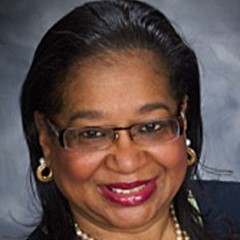 Dr. Barbara Alexander Lofton, University of Arkansas, Assistant Dean of Diversity & Inclusion Dr. Barbara Alexander Lofton, University of Arkansas, Assistant Dean of Diversity & Inclusion
Dr. Barbara Alexander Lofton received her Ed.D. from Grambling State University after graduating from Jackson State University and the University of Iowa with B. S. and M.A. degrees. She also participated in the Central Regional Leadership Forum for Women Administrators: Advancing Women’s Leadership, sponsored by the American Council on Education, the Management Development Institute at Harvard, and served as President of the American Association of Blacks in Higher education 2011-2013. She has written and received several grants to support minority outreach and scholarship initiatives within the Walton College, approximately $4 million. During her tenure at the Walton College of Business, she has been a leader in establishing programs, developing new courses in diversity, and studying abroad. Over the years, Dr. Lofton has received numerous awards for her leadership, commitment, dedication to excellence, and education. During the past 18 months, Dr. Lofton assisted in developing a new organization, Business School DEI Collaborative (BUSDEI), and currently serves as a board member. BUSDEI board plans to "advance diversity, equity, inclusion and belonging in higher education by aiding in professional development, impacting curriculum and contributing to research and service in the DEI space" at nationwide business schools. In March 2023, BUSDEI implemented its first conference under the new title.
Session 7E: How to Align New Academic Programs With Enrollment Needs
Description
This session will explore how different types of institutions are developing and funding new academic programs to meet enrollment needs.
Learning Objectives
1. Recognize the need for new academic programs
2. Compare different types of academic program designs
3. Analyze enrollment trends to better align academic needs
Speakers
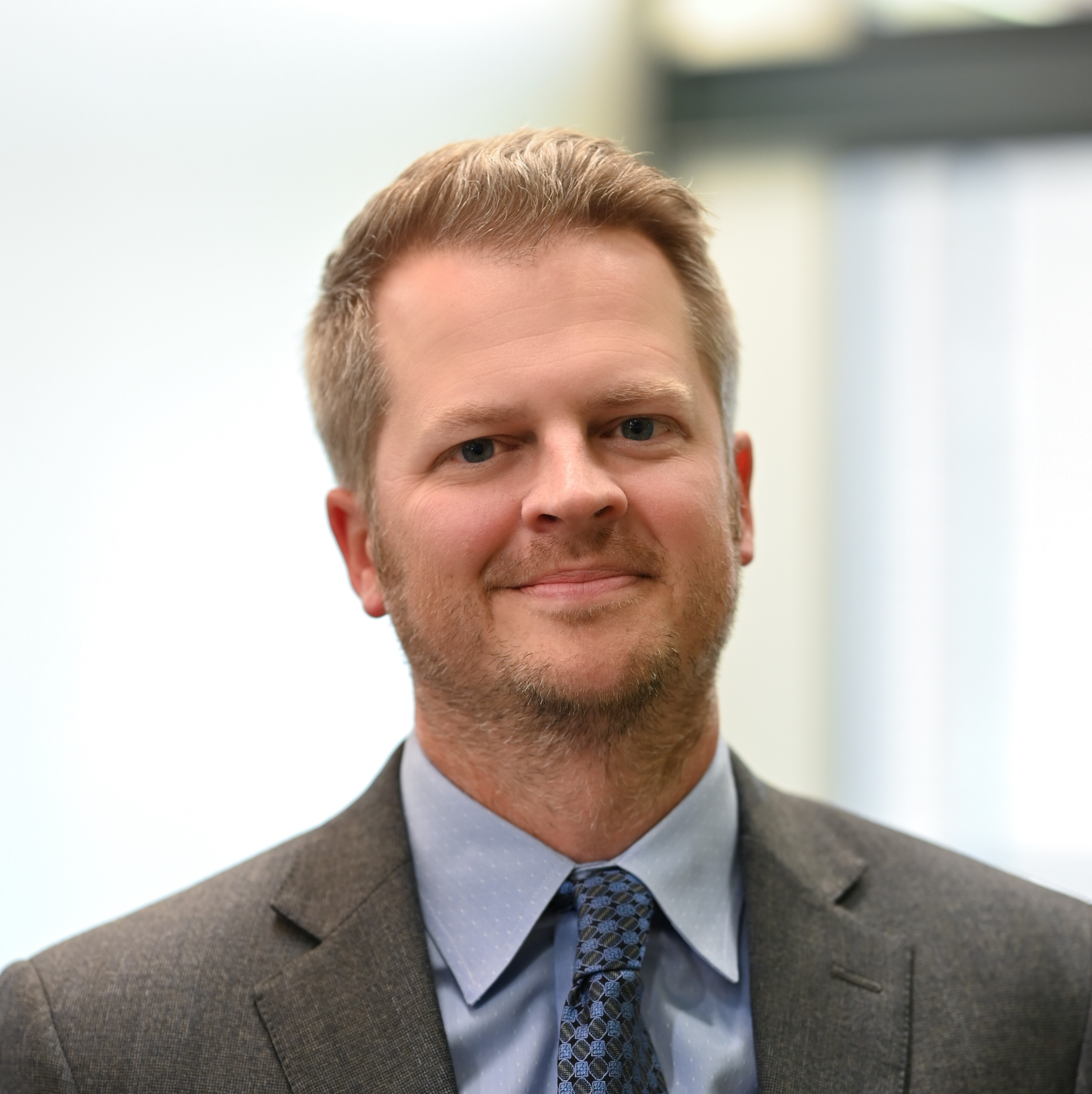 Mr. Alex Becker, Vice Chancellor for Finance and Administration, University of Arkansas at Monticello Mr. Alex Becker, Vice Chancellor for Finance and Administration, University of Arkansas at Monticello
Alex Becker is the Vice Chancellor for Finance & Administration at the University of Arkansas at Monticello and has been in his current position since 2018. He has been with the institution for 12.5 years and served in a variety of roles such as Business Manager as well as Associate Vice Chancellor for Administration.
Alex holds a bachelor’s in accounting from UA Little Rock as well as an MBA from Harding University and is a certified public accountant.
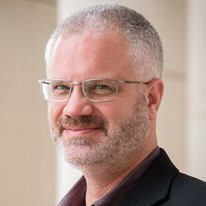 Mr. Joseph P. Pettibon II, Vice President and Deputy CFO, Texas A&M University Mr. Joseph P. Pettibon II, Vice President and Deputy CFO, Texas A&M University
Joe Pettibon is the Vice President & Deputy CFO at Texas A&M University. He holds a Bachelor of Science in Computer Science from Texas A&M University. Prior to his appointment as Deputy CFO, he served in the Office of the Provost as the Vice President for Enrollment & Academic Services. He has been with the University for over 29 years, originally hired as a Programmer/Analyst I for the Office of Scholarships & Financial Aid.
Dr. George Railey, Jr., Vice Chancellor for Academic Success, Alamo Colleges District
Dr. George Railey, Jr., began serving as the Vice Chancellor for Academic Success for the Alamo Colleges District in January 2018. He previously served as the dean of humanities and social sciences in the Los Rios Community College District, dean of instructional services/arts and sciences at Columbia College, interim vice chancellor for educational services and dean of instructional services at Modesto Junior College/Yosemite Community College District. This was followed by positions as the vice president of academic services at Chabot College, the vice chancellor of educational services and institutional effectiveness at State Center Community College District and the associate superintendent/vice president of academic affairs at Allan Hancock College.
Dr. Railey, Jr. earned an Ed.D. in higher education administration at the University of the Pacific, and MME and BME degrees in music education at Eastern Kentucky University. His wealth of experience includes campus and district leadership roles in multi-college districts and expertise in pathways models, workforce education, technology and institutional effectiveness. He is active in numerous professional organizations.
|

 Chris Spence, TIAA, Managing Director Government Relations
Chris Spence, TIAA, Managing Director Government Relations Barbara von Brandt, Schreiner University, Assistant Professor of Accounting
Barbara von Brandt, Schreiner University, Assistant Professor of Accounting Lucien Robert Costley, Schreiner University, Vice President for Planning and Finance
Lucien Robert Costley, Schreiner University, Vice President for Planning and Finance Russ Owen, TruEd, Senior Manager, Customer Relations
Russ Owen, TruEd, Senior Manager, Customer Relations Kelly Epting,
Kelly Epting,  Neal Goffman, Vice President, Anaplan Public Sector
Neal Goffman, Vice President, Anaplan Public Sector Dr. Barbara Alexander Lofton, University of Arkansas,
Dr. Barbara Alexander Lofton, University of Arkansas,  Mr. Alex Becker, Vice Chancellor for Finance and Administration, University of Arkansas at Monticello
Mr. Alex Becker, Vice Chancellor for Finance and Administration, University of Arkansas at Monticello Mr. Joseph P. Pettibon II, Vice President and Deputy CFO, Texas A&M University
Mr. Joseph P. Pettibon II, Vice President and Deputy CFO, Texas A&M University